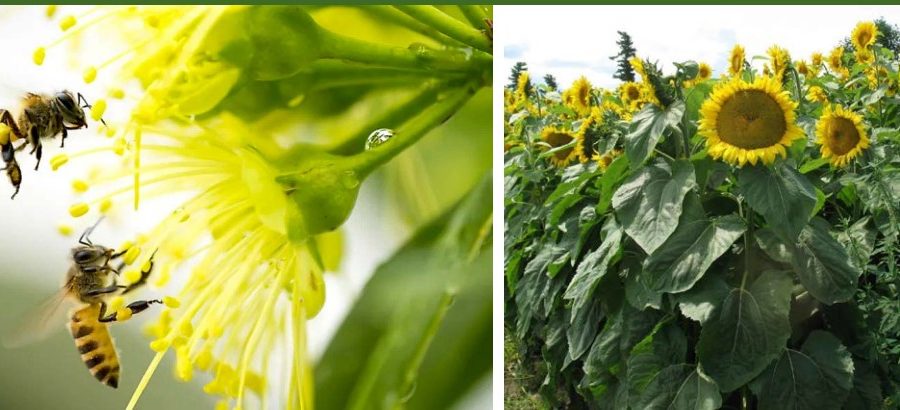Beekeeping is widely recognized for its contribution to environmental conservation and socio-economic development. It has recently acquired much attention due to its significant role in enhancing food security and household income through Managed Pollination Service (MPS).
Most plants and food crops rely on animal pollinators. Insects, particularly bees are the most effective pollinators of agricultural and horticutural crops. However, there is growing evidence indicating an alarming decline in diversity and abundance of pollinators due to degradation of natural habitats, excessive use of chemical pesticides and climate change, which has a negative impact on crop production.
With a decline in naturally occurring pollinators, animal pollination particularly honeybee has assumed an increasingly important role as pollination-service providers both in agriculture and forestry. MPS is therefore an emerging novel enterprise that enhance pollination of crops, by increasing the yielding and quality of crop production. This practice is vital in addressing the global food challenges as well as wood demands considering the growing human population which is estimated at 7.9 billion people in 2022.
MPS is also widely practiced in Tanzania. A good number of farmers and enterpreners are engaged in the practice through the use of honeybee colonies in pollination services in order to increase the quality of crop production. However, this practice is unregulated and hence the need for these Guidelines in order to set the required standards and procedures on how to use and manage the honeybee colonies for the purpose of pollination services.
The Guidelines for the Management and Use of Honeybee Colonies for Pollination Services in Tanzania is therefore prepared with the aim of providing directives, standards and procedures for the use and management of Pollination Services. The preparation of these Guidelines is very crucial to the protection of the beekeeping sector since the practice may cause negative impact, if it remains unregulated. Therefore, we call for all stakeholders at different capacities in the beekeeping sector to provide support and cooperaton in enhancing effective implementation of the Guidelines.
Read the Guideline below
Guideline for management and use of honeybee colonies for pollination services in Tanzania-final




